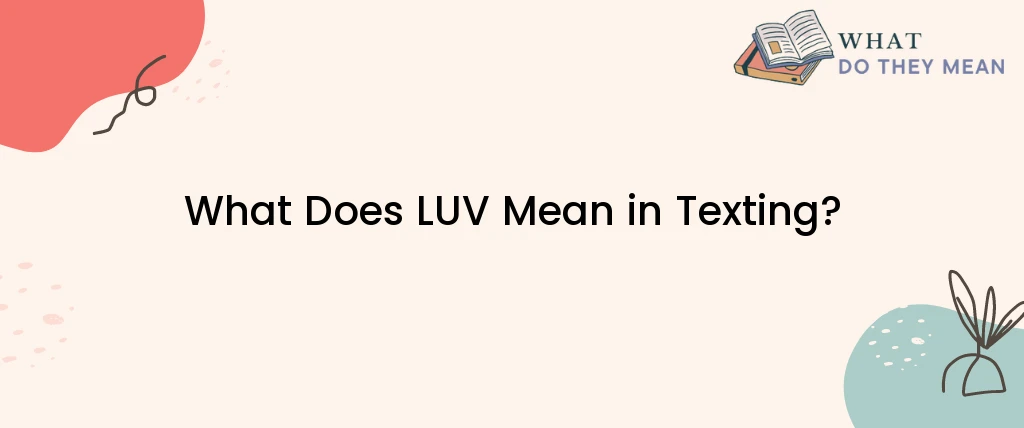In today’s digital age, texting has become one of the most popular forms of communication. With the rise of abbreviations and shorthand, it can be difficult to keep up with the latest lingo. One term that you may have come across is “luv,” but what does it mean? Let’s take a closer look at the meaning of “luv” in texting and how it’s used.
The Meaning of ‘Luv’ :
Luv” is a shortened version of the word “love.” It is often used in text messages, social media posts, and online conversations as a way to express affection or strong liking for someone or something . “Luv” is a shortened version of the word “love.” It’s often used as a casual, informal way to express affection or appreciation for someone or something. You might see it used in messages like “Thanks for your help, luv” or “Miss you, luv.”
It’s a casual way of expressing love and can be used in different context. It’s mostly used in informal setting and chats.
Where to Use ‘Luv’
“Luv” can be used in a variety of ways, including:
- As a message of affection to a romantic partner or crush
- As a way to express fondness for a friend or family member
- As a way to show appreciation for something, such as a new purchase or an experience
“Luv” is generally considered to be a casual, friendly term, and is usually used among friends or family members. It’s not typically used in formal or professional contexts.
It’s also important to note that the use of “luv” can vary depending on the person using it and the context of the conversation. Some people may use it frequently in their messages, while others may only use it occasionally.
How to Use ‘Luv’
Using “luv” in a text message is simple. You can use it on its own, as in “luv ya” or you can use it as a way to sign off at the end of a message, such as “Talk to you later, luv.”
It’s also important to pay attention to the tone of the message, as the use of “luv” can be misinterpreted as flippant or insincere if used in the wrong context.
“Luv” is generally considered to be a casual, friendly term, and is usually used among friends or family members. It’s not typically used in formal or professional contexts.
It’s also important to note that the use of “luv” can vary depending on the person using it and the context of the conversation. Some people may use it frequently in their messages, while others may only use it occasionally. Using “luv” in a text message is simple. You can use it on its own, as in “luv ya” or you can use it as a way to sign off at the end of a message, such as “Talk to you later, luv.”
It’s also important to pay attention to the tone of the message, as the use of “luv” can be misinterpreted as flippant or insincere if used in the wrong context.
It is also commonly used in social media in hashtags, captions and comments. Be Careful with ‘Luv’
While “luv” is a harmless way to express affection or appreciation, it’s important to be aware of the context and audience when using it. It might not be appropriate in formal setting or with people who are not accustomed to using internet slang.
As a general rule, avoid using it in professional or formal situations, such as in business emails or formal correspondence. But in casual setting, it’s a fun and playful way to express love and appreciation.
Conclusion
“luv” is a common shorthand for “love” that is often used in text messages, social media posts, and online conversations. Whether you’re expressing affection to a romantic partner, showing appreciation to a friend, or just expressing fondness for something, “luv” can be a playful and casual way to do so. Just remember to be aware of your audience and the context in which you’re using it. While it’s not typically used in formal or professional contexts, the use of “luv” can vary depending on the person using it and the context of the conversation. Remember to pay attention to the tone of the message when using “luv” to ensure it’s not misinterpreted. Understanding the meaning and proper usage of “luv” will help you navigate the world of texting like a pro!”

As a researcher, I am curious and driven by the pursuit of knowledge. I approach my work with a critical eye, carefully evaluating sources and methods to ensure that my findings are accurate and reliable. Whether delving into scientific studies, historical records, or cutting-edge technologies, I am always seeking to expand my understanding and make new discoveries. I am dedicated to uncovering new insights and finding solutions to complex problems, and am driven by a passion for uncovering the truth.

